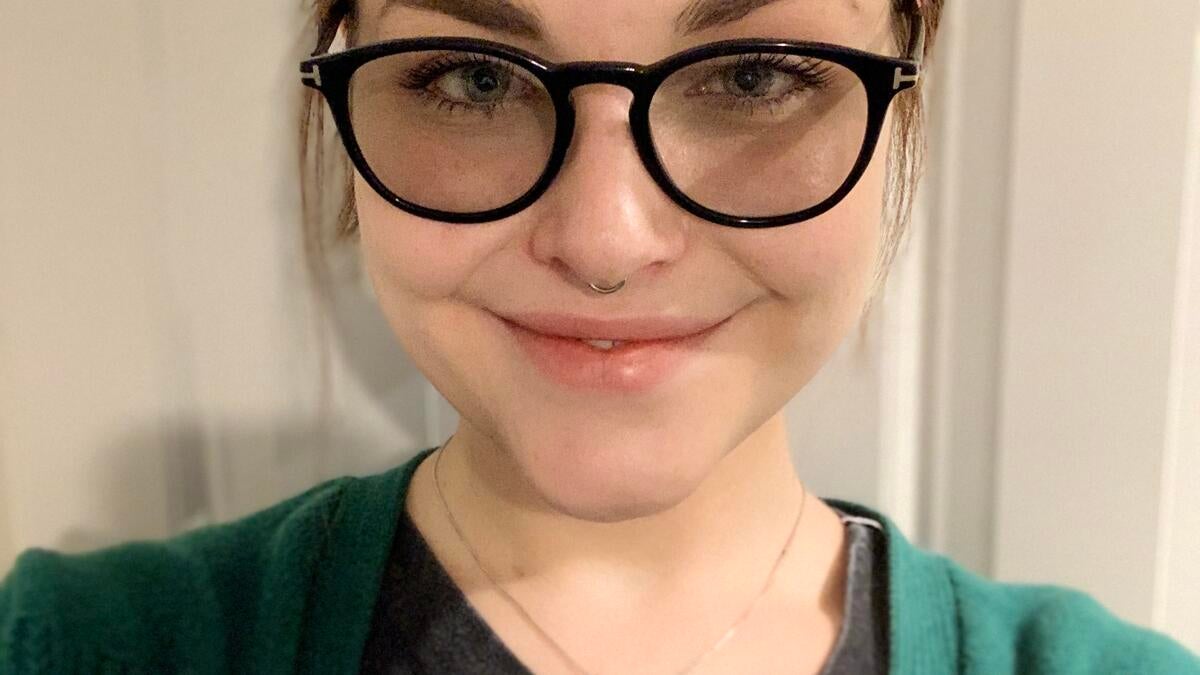History student overcomes obstacles to graduate with master’s degree and honors

Madeline Stull will be graduating this spring with her bachelor’s and master’s in history and minors in Arabic studies and civic and economic thought and leadership.
Editor's note: This story is part of a series of profiles of notable spring 2020 graduates.
Madeline Stull has made the most of her Arizona State University education. The Scottsdale native always knew she wanted to go to graduate school and saw Barrett, The Honors College and the 4+1 program as opportunities that were too good to pass up.
“I have always been an avid reader, which always made me quite curious,” Stull said. “Since elementary school, I have been looking forward to attending college to fill that curiosity. As it turns out, it simply grew larger.”
Stull was granted many awards while at ASU including a Friends of the Center research grant from the Center for the Study of Religion and Conflict, Norman Family scholarship from Barrett, The Honors College, a School of Civic and Economic Thought and Leadership Travel Grant and most recently, a Fulbright scholarship to study in Serbia after graduation.
Stull underwent chemotherapy while going through school and at times felt isolated, but she pushed forward and took hold of each liberty that came her way. Starting out as a researcher in the Center for the Study of Religion and Conflict, she was able to work with history Professor Chouki El Hamel, who offered her another opportunity.
“Due to my background in Arabic, we were a great research pair — leading to my position as the first employee in the Center for Maghrib Studies,” Stull said. “His help and support motivated me to submit a chapter of my undergraduate thesis to a conference in Poland, which was the only paper accepted from an undergraduate.”
Stull will be graduating this spring with her bachelor’s and master’s in history and minors in Arabic studies and civic and economic thought and leadership. We caught up with her and asked her a few questions about her time at ASU.
Question: What’s something you learned while at ASU — in the classroom or otherwise — that surprised you or changed your perspective?
Answer: Being a student at ASU taught me the importance of finding your own community. More than once I felt alienated, ostracized and misunderstood by numerous groups on ASU's campus, especially during the period I was undergoing chemotherapy. It was discouraging, and quite honestly, disappointing. I expected more from such an "inclusive" university. Fortunately, I found that inclusion in small groups of people on campus. My network in the history department and the School of Civic and Economic Thought and Leadership have made me feel more at home in an academic setting than any other place or group. Their smiling faces and pointed critiques mean more to me than they will ever know.
Q: Which professor taught you the most important lesson while at ASU?
A: Dr. Chouki El Hamel and Dr. Carol McNamara have both taught me, and continue to teach me, that individuality and personal values are at the core of being an incredible scholar. They have shown me both how to accept myself and how to use that acceptance to continue growing in academia.
Q: What’s the best piece of advice you’d give to those still in school?
A: Looking forward while staying present. There are so many opportunities out there, and you will never know unless you start looking early. Try your best to identify what you want and write it down. Then plan accordingly, so that you can both accomplish what you want while being able to have time for yourself.
Q: What was your favorite spot on campus, whether for studying, meeting friends or just thinking about life?
A: I love the mall in front of Old Main as well as the new library.
Q: What are your plans after graduation?
A: As of now, I plan to go to Serbia for a year on a Fulbright. Afterward, I intend to get a PhD in Eastern European history somewhere.
Q: If someone gave you $40 million to solve one problem on our planet, what would you tackle?
A: Education for all, though I am not sure $40 million is enough to solve a global issue.
More Arts, humanities and education

‘It all started at ASU’: Football player, theater alum makes the big screen
For filmmaker Ben Fritz, everything is about connection, relationships and overcoming expectations. “It’s about seeing…

Lost languages mean lost cultures
By Alyssa Arns and Kristen LaRue-SandlerWhat if your language disappeared?Over the span of human existence, civilizations have…

ASU graduate education programs are again ranked among best
Arizona State University’s Mary Lou Fulton College for Teaching and Learning Innovation continues to be one of the best…

